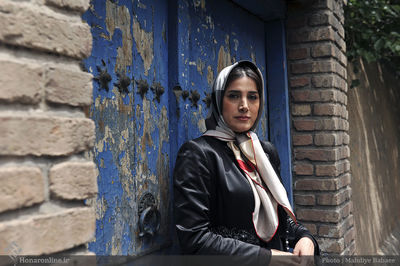Mahboubeh Kazemi Doulabi is the owner and manager of Taraneh Baran Gallery and Baran Auction in Tehran. She has been in the business of art tourism for 10 years. Following is a quick word with her.
- Iran is a country leaning on values. It is rich in civilizational sources. At the moment, most of our discussions circle around Iranian-Islamic civilian as two biggest sources of art in the world. The country has many artists who work in the fields of national art and handicraft. Their works are globally influential when it comes to topics such as civilization, history, culture, mysticism, philosophy and literature.
In a word, we have a lot to say in these topics. Iran also has what it takes to be the Mecca of Islamic art in the world. This is because it has Islamic topics and sources to talk about and also because Persian is the second official religious language in the world. Throughout history, Persian has been a prestigious cultural language used by various civilizations and we can promote it using widespread documents and activities.
- Given the existing sources, I believe it is possible to promote the role of tourism in art and the role of art in tourism. Our most important objective has to be promoting Iranian-Islamic culture. Naturally, we would try and make it a profitable venture for our country and artists as well. This kind of promotion and development has its own sub-cultures, economies and arts.
- Other sources include handicrafts, theater, music and cinema. We could use architecture and urban scenery to promote art tourism to encourage foreigners to travel to the country in order to visit, explore and engage in activities related to art. This has happened in other countries. There is no reason to think why they cannot happen in Iran. For instance, we can make the Venice Biennial an Iranian art event in order to attract foreign tourists to Iran. This includes the art of calligraphy which is a deep-rooted, historic and original Iranian art. The world knows full well about it. There are now separate auctions for calligraphic works in the Christie’s and Sotheby’s.
Art tourism speaks for itself. All you need to do is organize an art event that attracts art tourists. Baran Auction is the first art-tourism event in Iran that has identified the breadth of a new tourism agenda, as well as its connections to the sociology and geography of art. We had many foreign visitors in our first auction. The time is now to also make the Baran Auction a unique art and tourism event. This is because tourists won’t just come to Iran to visit an ordinary gallery.
Most of the art works on sale in Baran have a long history. Museums that have historically catered for local art publics now need to relate increasingly to growing touring art publics. Even if we don’t sell anything, we still have managed to attract foreign tourists. I believe calligraphy has a promising future. Soon we would have new records in calligraphy auctions in both national and international levels.
- According to the UNWTO, some four million people visited the 2017 Venice Biennial. This is huge. Art tourists always want to see original art works. With original art works we could have the same number of visitors each and every year. We have the capacity and the means to organize exhibition museums for international tourists. As maintained by our Leader Ayatollah Seyyed Ali Khamenei, the time has come to focus more on non-oil economic activities. I can tell you with confidence that art tourism can help to develop our national economy.

